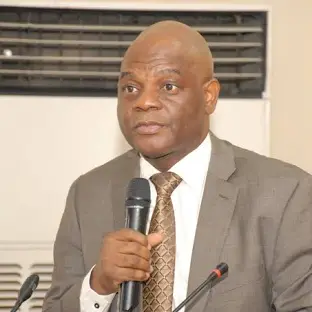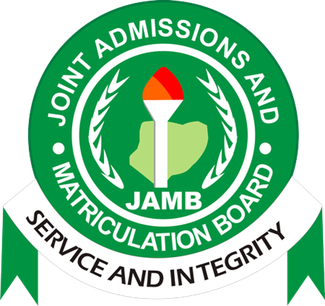As Nigeria enters a new year like other nations of the world, the citizens, smarting from economic hardship in particular, have begun to share their hopes and expectations in the new year- 2025. Interestingly, despite the economic odds faced Nigerians remain optimistic about the prospects for recovery and growth. Korede Abdullah, Africa Health Report, AHR, Southwest correspondent who spoke with a cross section of residents in Lagos, reports
Nigeria’s Economic Woes Deepen
On assumptions of office in May 2023, President Bola Tinubu’s Renewed Hope Agenda was unveiled with great fanfare, promising to improve the lives of Nigerians, strengthen economic collaboration, foster social cohesion, and develop a sense of fairness and equity.
However, Nigerians who spoke with Africa Health Report (AHR) felt that the promised hope is fast dwindling and disappearing into the thin air, amidst widespread misery and uncertainty in 2025.
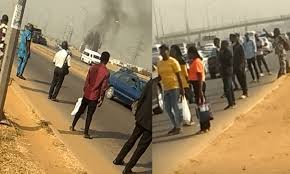
The country’s inflation rate soared to 40.9% for food and 34.2% for all items in June 2024, marking a record increase in food prices amid skyrocketing transportation costs.
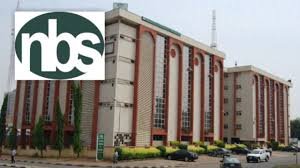
The National Bureau of Statistics (NBS) reported that the price of beans in October 2024 was a staggering 282% higher than the same period in 2023, while local rice prices rose by 153% compared to October last year.
The economic shocks have led to the continuous devaluation of the Naira against the US Dollar, further complicating the country’s economic woes.
External economic factors and the discontinuation of the fuel subsidy last year have also contributed to the crisis.
Downward Spiral Since Tinubu’s Ascendancy
Nigeria’s economy has been on a downward spiral since President Bola Tinubu took office, plunging millions of citizens into unprecedented hardship.
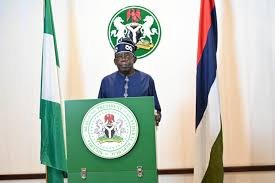
The decision to remove fuel subsidies without adequate compensatory measures has been a significant contributor to the economic crisis, with inflation surging to an all-time high.
This has resulted in over 80% of Nigeria’s estimated 200 million people living in poverty, struggling to afford basic necessities.
The situation has been further exacerbated by the government’s failure to provide meaningful support, with a cash transfer program aimed at cushioning the impact of the economic reforms reaching only 1.7 million people by December 2024, a fraction of the 15 million intended beneficiaries
Economic Recovery and Growth
Many Nigerians are eagerly awaiting the government’s implementation of policies that will drive economic diversification, reduce the country’s reliance on oil revenues, and create much-needed job opportunities.
Economic diversification is not a new concept in Nigeria, as experts have long emphasized its potential to boost domestic output, employment, income, and economic growth.
Some Nigerians believe that by diversifying the economy, Nigeria can reduce its vulnerability to fluctuations in global oil prices and create a more stable and sustainable economic environment.
This, in turn, can lead to increased job opportunities and improved living standards for Nigerians.
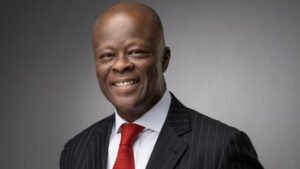
“I expect the government to prioritize economic diversification, focusing on industries like agriculture, technology, and manufacturing,” said Mr Lukman Pariola, a trader at Anisere, Ikotun, Lagos.
Infrastructure Development
Lagos residents are growing increasingly concerned about the city’s pressing infrastructure challenges, particularly in the areas of transportation and energy.
The city’s inadequate transportation systems and frequent traffic congestion continue to frustrate commuters, while the erratic power supply hinders economic productivity and disrupts daily life.
As the city’s population continues to swell, residents are urging the government to invest in sustainable solutions to address these challenges and improve the overall quality of life in Lagos.
“The government should invest in upgrading our roads, public transportation systems, and energy infrastructure,” said Mr. Emmanuel Akpan, a commuter and civil servant, who relies on public transportation.
Another responder, Alhaji Dauda Oluwaseun, a transporter and logistics operator, who spoke to our correspondent gave a knock to President Tinubu for allocating 57% of Ministry of Transportation 2025 budget to Lagos State green rail project instead of spreading it across the country in order to boost the economy.
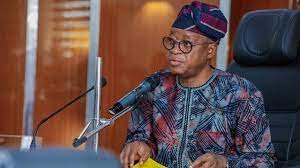
“This investment in such green rail in major urban areas across the country would improve the quality of life for residents and support business growth.”, Alhaji Oluwaseun explained.
Enhanced Healthcare Services in 2025
As Nigeria enters the new year, citizens are eagerly anticipating improved healthcare services and access. The country’s healthcare system has faced numerous challenges in recent years, including corruption, manpower shortages, and inadequate funding.
The Nigerian Medical Association (NMA) and the Association of Nigerian Private Medical Practitioners (ANPMP) have called for systemic reforms to address these issues.
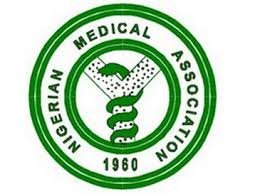
The NMA President, Prof. Bala Audu, in an interview with the Newsmen on Sunday in Lagos, said driving this would deliver quality, accessible and affordable care to citizens
Similarly, Dr Jonathan Esegine, Lagos State Chairman of ANPMP, said the health sector is a critical sector plagued with a lot of challenges, particularly the shortage of manpower.
The groups advocated for improved universal health coverage, enhanced retention strategies for health workers, and increased investment in medical infrastructure and research.
The NMA and ANPMP urged the government to prioritize healthcare worker safety and security, especially in high-risk areas, and to increase funding for the health sector to at least 15% of the national budget.
They also emphasized the need for expanded health insurance coverage, particularly in rural and underdeveloped regions.
“I hope the government will increase funding for healthcare, expand health insurance coverage, and invest in medical research and development,” said Mrs. Adebukola Bello, a nurse at a local hospital in Lagos.
The government’s initiatives to address public health challenges, such as the recent outbreak of diseases like Lassa fever and cholera are also eagerly anticipated in 2025.
Nigerians Optimistic About Education Reforms in 2025
Nigerians are hoping for significant improvements in the education sector in 2025, with a major focus on access to quality education for all.
Citizens are eager to see the government implement initiatives that address the country’s education challenges, including inadequate funding, outdated curricula, and insufficient infrastructure.
The Academic Staff Union of Universities (ASUU) on Tuesday, criticized the Federal Government for allocating only 7% (N3.52 trillion) to education in the 2025 budget, falling short of UNESCO and UNFPA’s recommended 15%-20% benchmark for underdeveloped countries like Nigeria.
“Inadequate allocation may hinder meaningful progress in Nigeria’s education sector.” ASUU warned.
Many are advocating for increased investment in education, improved teacher training programs, and expanded access to vocational training and higher education, particularly for disadvantaged groups.
With a renewed emphasis on education, Nigerians are optimistic that the government will take decisive action to revamp the sector and equip young people with the skills needed to succeed in the modern economy.
“The government should focus on improving our education system, providing access to quality education for all, and investing in youth empowerment programs,” said Mr. Taiwo Sanusi, a teacher at a public school.
Analysts said the initiatives would equip young people with the skills needed to succeed in the modern economy.
Security and Peacebuilding
Security concerns continue to plague Nigeria, with citizens eagerly awaiting government action to address the myriad challenges in 2025.
Key security issues include banditry in the north, kidnapping in various parts of the country, and other criminal activities such as armed robbery, cultism, and piracy.
The north has been particularly hard hit by banditry, with frequent attacks on communities and roads, while kidnapping has become a nationwide menace, with cases reported in nearly every state.
Additionally, the country’s waterways have become increasingly vulnerable to piracy, further exacerbating the sense of insecurity among Nigerians.
“To address the security challenges facing the country, the government must prioritize peacebuilding initiatives and develop effective strategies to tackle the root causes of these security issues.”, said Sheikh Uthman Sulaiman, a Buda-based Muslim cleric, who spoke to our correspondent on the phone.
Mr Abdukabir Olawale, a businessman also shared his thoughts, “I expect the government to take decisive action to address insecurity, including investing in community policing and addressing the root causes of conflict.”
Mr Olawale added that the government’s initiatives to promote regional cooperation and tackle cross-border threats are also crucial.
Glimmer of Hope
In a move that has brought a glimmer of hope to Nigerians struggling with economic hardship, the Nigerian National Petroleum Corporation (NNPC) and Dangote Refinery Group have announced an immediate reduction in fuel prices.
This decision is expected to provide much-needed relief to citizens who have been grappling with the high cost of living in 2025.
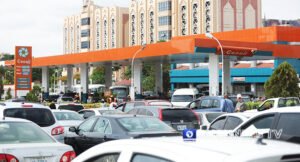
The NNPC had earlier slashed the price of petrol from ₦1,200 to ₦925 per liter on December 23rd, while the Dural Refinery Group cut its price to ₦889 per liter.
This downward price adjustment has been described as a welcome development for Nigerians, who are hoping that it will have a positive ripple effect on the economy and lead to a reduction in the cost of goods and services.
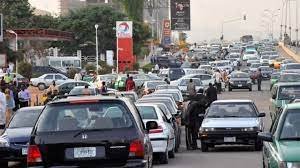
Not Yet Uhuru
The fuel price slight reduction prices have been met with cautious optimism by analysts, who acknowledge it as a step in the right direction. However, they warn that this move alone is insufficient to address the country’s deepening economic crisis.
With inflation and poverty rates remaining stubbornly high, experts argue that more comprehensive measures are needed to tackle the underlying structural issues driving these challenges.
As Dr Oluwatosin Yusuf, an economist, who spoke with our correspondent put it, “The government must implement broader reforms to stimulate economic growth, create jobs, and improve living standards.”
Dr Yusuf added, “This includes investing in critical sectors such as education, healthcare, and infrastructure, as well as promoting policies that encourage entrepreneurship, innovation, and foreign investment.”
By adopting a more holistic approach, many of those who spoke with our correspondent concurred that the government can help alleviate the economic hardships faced by citizens and put the country on a more sustainable path to prosperity.
As President Bola Tinubu’s administration continues to unfold in 2025, Nigerians eagerly await tangible improvements in their lives.
With the recent presentation of the 2025 budget, which includes allocations for minimum wage increases, social programs, and infrastructure development, there’s a glimmer of hope. However, only time will tell if these efforts will truly put smiles on the faces of Nigerians.


